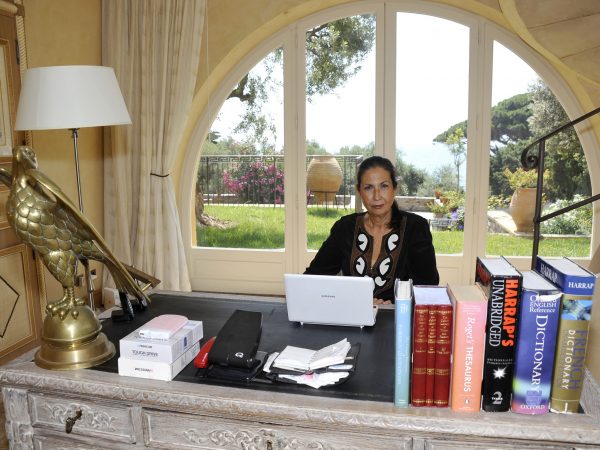Does a woman need a ‘room of her own’ to write?
Does a woman need a ‘room of her own’ to write?
Does a woman need a ‘room of her own’ to write?
-
Hannah
-
Hannah

Almost 100 years ago, the English writer Virginia Woolf published a long essay entitled A Room of One’s Own, based on lectures she had given at the University of Cambridge. In the essay, she asserted:
A woman must have money and a room of her own if she is to write fiction.
Woolf argued powerfully that at the time (the 1920s) women did not lack the talent or inclination to write; they lacked the opportunity, being expected to fulfil roles of domesticity and nurture in the home.
I have thought often, through my writing life, of ‘the room of one’s own’. I have thought about how necessary this is for me, and for other female writers (male too, no doubt, but here I am considering the particular perspective of women).
Years ago, I visited Sissinghurst Castle near my home in Kent. It was purchased in 1930 by Vita Sackville-West, who, with her husband, developed and renovated the land and buildings. Vita was a friend and lover of Virginia Woolf, and she too was a writer, a very well respected one. This is the place on the estate that she claimed as her own for her writing, the tower gatehouse:

The tower was Vita’s private space, off limits to all except a very few guests by invitation. Even her children were not allowed up the stairs to the first-floor writing room. Vita filled her room with books, and there she had the freedom to write.
I have to admit, this seems heavenly to me – the quiet, the solitude. I too have writing spaces in my homes in Ireland, Kent and France, and they are sanctuaries where the demands of life recede, leaving room for the words to flow.
I write at my desk often; it’s antique and I love it. However, I do write outside of my ‘room of one’s own’ at times. I’ll write at the kitchen table while dinner simmers on the stove; I’ll write at a patio table in the sunshine, enjoying the scent of the flowers and the drone of the bees. Sometimes I’ll jot down ideas or phrases in a notebook while people-watching on a bench or sipping a coffee in a pavement café.
I enjoy a change of scenery as I write; sometimes a new perspective can stir the muse. I am able to ‘float’ for a little while as I write – but invariably, I return to my writing room, the home of my writing.
I wonder: would I be able to write as I do, seriously, novel after novel, year after year, if I did not have a space devoted to writing? I think, perhaps, I would feel a little lost, that quite likely I would not write so much, would feel there was less room in my life for writing.
It strikes me that having a dedicated writing room is a means by which we can clearly proclaim, I am a writer, and I am serious about this, and I intend to write. Often. We physically create space in a very busy life in order to write, which is so important to us – to our wellbeing and growth, to our spirit. We give ourselves permission to be all of ourselves in this space, not only wife, mother, sister, aunt, grandmother, friend, but writer.

My writing room in France; I usually sit facing out toward the view of the sea
Of course, a ‘room of one’s own’ needn’t be an actual room. Much as we may like it, very few of us can have our own tower gatehouse for writing like Vita. What we need, simply, is a space: a corner, a cubby, a little niche; someplace that we can call our own and devote entirely to writing (or sewing, or crafting, or painting, or composing – any art).
When you sit in this space – a window seat, perhaps, or an alcove under the stairs – you give yourself permission to be alone with the words, even if you are not physically alone (the family can survive without you for just a little while). You let the writing matter; you let the part of you that is a writer breathe and feel and speak and create.
The poet Rainer Maria Rilke advised a young aspiring writer as follows:
Go into yourself. Find out the reason that commands you to write; see whether it has spread its roots into the very depths of your heart; confess to yourself whether you would have to die if you were forbidden to write… This most of all: ask yourself in the most silent hour of your night: must I write? (Letters to a Young Poet, 1929)
If you are a writer, if you must write, then you need to make room for that – make a room for that.
Does a woman need a ‘room of her own’ to write? Yes, I think we do. I think we need this very much, and I think we must recognise that it is okay to claim a little space – and time – for what is as essential to us as breathing.
Photo credits: 1) Rawpixel.com/Shutterstock.com; 2) Niek Goossen/Shutterstock.com.